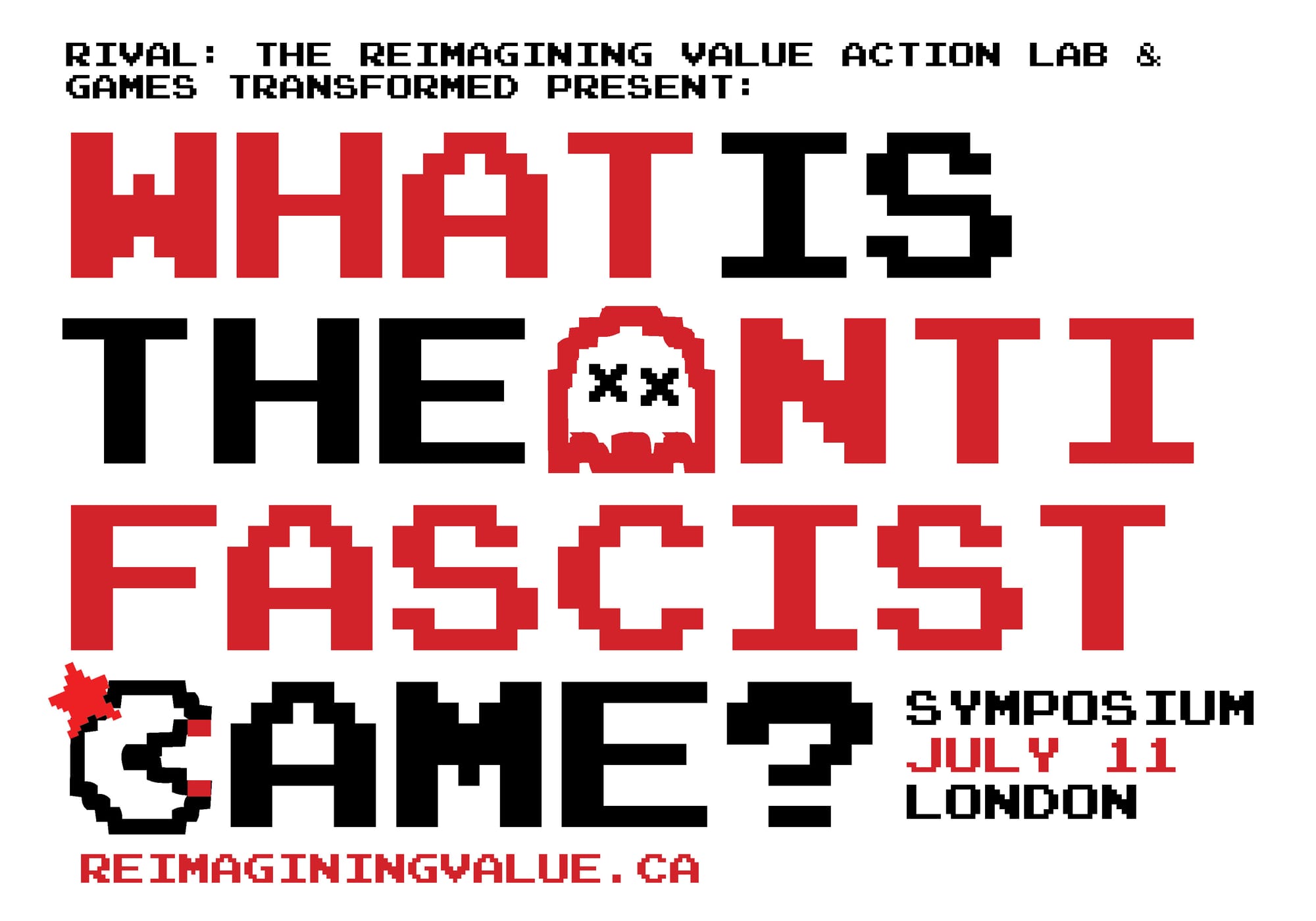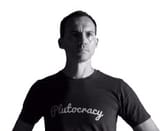CFP: WHAT ARE ANTIFASCIST GAMES?

Briar Dickey, Max Haiven, Konstanze N’Guessan, Sarah Thorne, Thomas Spies invite submissions for a special issue of Eludamos titled What are Antifascist Games?
Below is the full call for papers:
“In many places around the world, the fascist threat is rising. Far right, neonationalist and ultra-conservative parties, politicians, and pundits have taken advantage of growing inequalities and alienation to gain power and influence.This rising fascistic tide is deeply entangled with games and play (Lankford et al. 2024; Schlegel and Kowert 2024; Wells et al. 2024). Over the last decade or more, scholars have witnessed the intertwining of fandoms with reactionary politics (Massanari 2024; Wilson 2018). Others have observed the darkly playful behaviour of the digital far-right (Davies 2022; Grobe 2022; Haiven et al. 2022; N’Guessan 2024). These tendencies build on the long-standing presence of authoritarian and exclusionary narratives and structures in commercial games (Did 2024; Hammar 2020) that frequently draw on cryptofascist notions of play (Eidelpes 2014), already, at least implicitly, invested in cultures of white-supremacy (Trammell 2023). And it coincides with the gamification of many violent and exclusionary aspects of our worlds (Flanagan and Jakkobsen 2024; Haiven 2026; Hon 2022). But games and play(fulness) also offer possibilities for rupture and resistance, which can be turned to antifascist aims and towards the horizon of collective liberation (Flanagan 2009; Ruberg 2020; Woodcock 2019). When we speak of games, we are not only thinking of the massive digital games industry. We also want to expand our attention to include board games, role-playing games (tabletop, live action/LARP and more), sports, the gamification of… everything, sexual and romantic play, educational games, serious games and the broader concept of play. When we speak of fascism as a global phenomenon, we are thinking historically and in the present, about not just an ideology and political organization but also a reactionary set of attitudes, dispositions and orientations that entrench and celebrate power and domination, both in “the West” and in the majority world.
To explore these contradictions and conundrums, we propose a special issue of Eludamos that poses questions, including:
- How are today’s forms of fascism (dangerously) playful and with what consequences? How are they mobilizing games? How do they make use of gamified platforms (Twitch, YouTube, Discord) and gamified digital practices? Does this gamification make them different from their 20th century ancestors?
- How are fascist games and play entwined with the hyper-capitalist and games industry and its exploitation of workers throughout its supply chains, from the extractive mining operations to the self-exploitative hustle of “independent” developers? How are they entangled with the broader tendency towards capitalist gamification, and with the even broader climate of capitalism that feels, to so many people, like an unwinnable game?
- How is ludic fascism connected to resurgent patriarchy, racism, nationalism, colonialism and genocide (in Palestine and beyond), revanchist politics, and rampant and violent transphobia?
- How do mainstream and alternative games (digital and analogue) promote or encourage fascist attitudes in either content or form (or both)? And how can such games (or other playful pursuits) be part of an antifascist project?
We will also ask questions of resistance, rebellion and renewal, including:
- What role (if any) do play and games play in defending our communities from and ultimately abolishing fascism?
- How can anti-capitalist, queer, feminist, decolonial crip or “gaming from below” coordinate with anti-fascist efforts? And how can we support or encourage resisting or rebelling against fascist games?
- How shall we, who care about the power of games, draw the line and hold the line against fascist imaginaries? How shall we recognize enemies and encourage our allies?
- What games will help us win a new postfascist, postcapitalist world? How will games and play feel after we win? What games will we play on the way?
These intentionally provocative questions are intended to excite, rather than limit the imagination about submission proposals to the special issue. They are based on discussions held at the “What is the Antifascist Game” symposium held in London in July of 2025 as part of the Games Transformed festival, whose participants include Max Haiven, Sebastian Quack, Carina Erdmann, Sarah Thorne, Nick Koppenhagen, Paolo Ruffino, Konstanze N’Guessan, Venessa Theonia, Thomas Spies.

We welcome a plurality of responses to our call from people including game designers, interactive theatre practitioners and artists, scholars and intellectuals (with or without institutional affiliations and credentials), community organizers who share an opposition to fascism and a recognition of its entanglements with racism and white-supremacy, with patriarchy, homophobia and transphobia, with capitalism, nationalism, and imperialism, with ableism, and with other systems of domination. We can only publish work in English.
By December 19, 2025, we welcome 250-300 word proposals for 9000-word research articles (for peer review stream) 3000-word essays, artist statements, review essays or other material
Please send your proposal, along with a 50–125 word biographical note, using this form.
This special issue is edited by Briar Dickey, Max Haiven, Konstanze N’Guessan, Sarah Thorne, Thomas Spies.For inquiries, please contact Max Haiven or Thomas Spies at edulamos-special-issue at reimaginingvalue dot caPreliminary timeline:
Preliminary timeline:
Deadline for abstracts: 19th December 2025
Response to abstracts: early January 2026
Deadline for paper drafts: early May 2026
Papers sent to reviewers: early June 2026
Revisions due: late November 2026
Copyediting: from January 2027
Publication: July 2027
Eludamos: Journal for Computer Game Culture is an international, interdisciplinary, peer-reviewed journal dedicated to the critical academic study of games and play. Eludamos is fully open access. Copyright for all manuscripts published at Eludamos remains with authors. All submissions need to be fully formatted in accordance with Eludamos guidelines. Please consider Eludamos’ information for authors when preparing your submission.”
